本文由SAOTA授权mooool发表,欢迎转发,禁止以mooool编辑版本转载。
Thanks SAOTA for authorizing the publication of the project on mooool, Text description provided by SAOTA.
SAOTA:对开放式的生活和居住或通过空间的需要共同激发了这个透明、简单的家庭住宅。SAOTA设计的空间位于迈阿密历史悠久的Collin滨水区的印第安小溪运河和松树路之间,既开阔又流畅——既能满足在运河活动时需要的开放空间,也可以在你需要隐私的时候提供空间。
SAOTA:Open plan living and the ability to live in and through your home has inspired this transparent and easy-living family home. Set between the Indian Creek Canal and Pine Tree Drive in Miami’s historic Collin’s Waterfront district, the SAOTA-designed space is expansive and fluid – opening up to the activity of the canal when desired, or contained when privacy is needed.
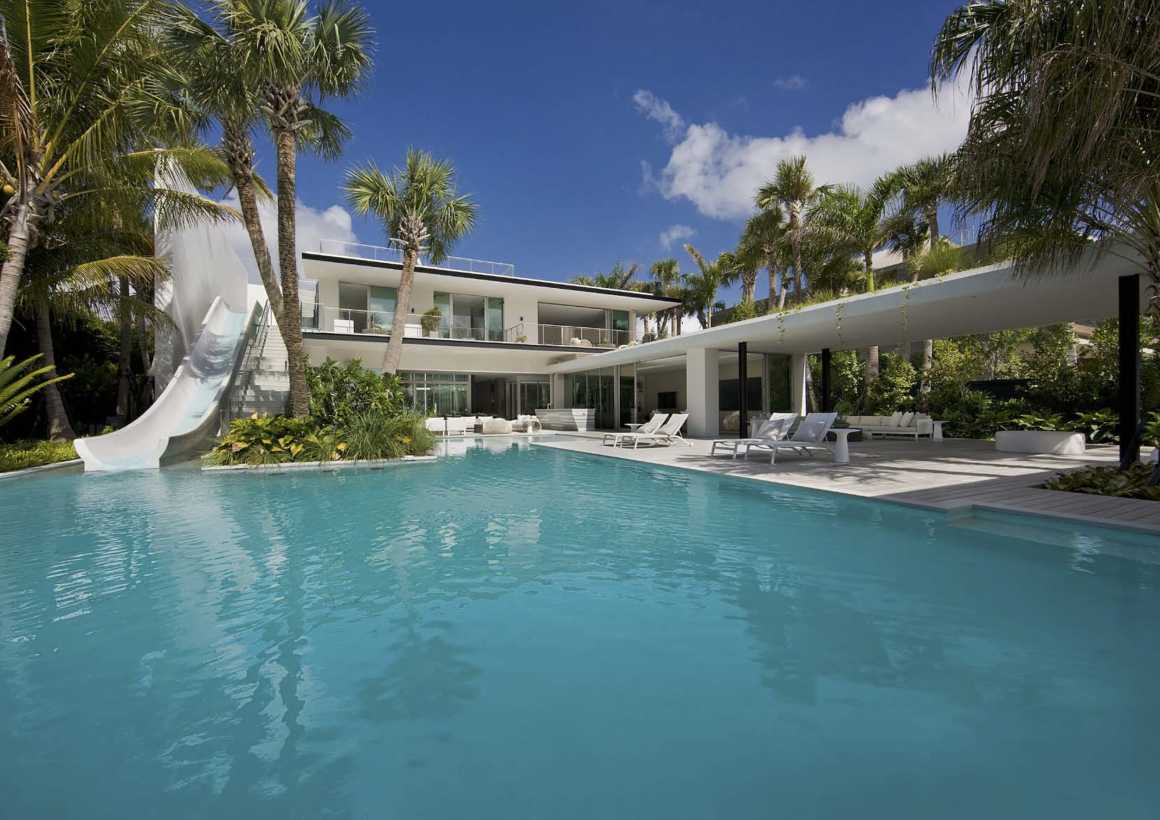
建筑坐落在一个具有强烈线性比例的多孔场地上,将景观和水体带入室内,创造了更大的空间感。通过加入内向型和外向型两种庭院设计,这栋房子可以从两个方向向外眺望。在房子的任一视角都能看到这些景观,因此,与户外产生了一种有形的、直接的关系。
Set on a strongly linear proportioned site, the building is porous, bringing the landscape and water bodies into the interior of the house to create a greater sense of space. Through the introduction of a number of introverted and extroverted courtyards, the house boasts views to the outside in two directions. These views are visible from almost any point in the house, creating a tangible and immediate relationship to the outdoors.
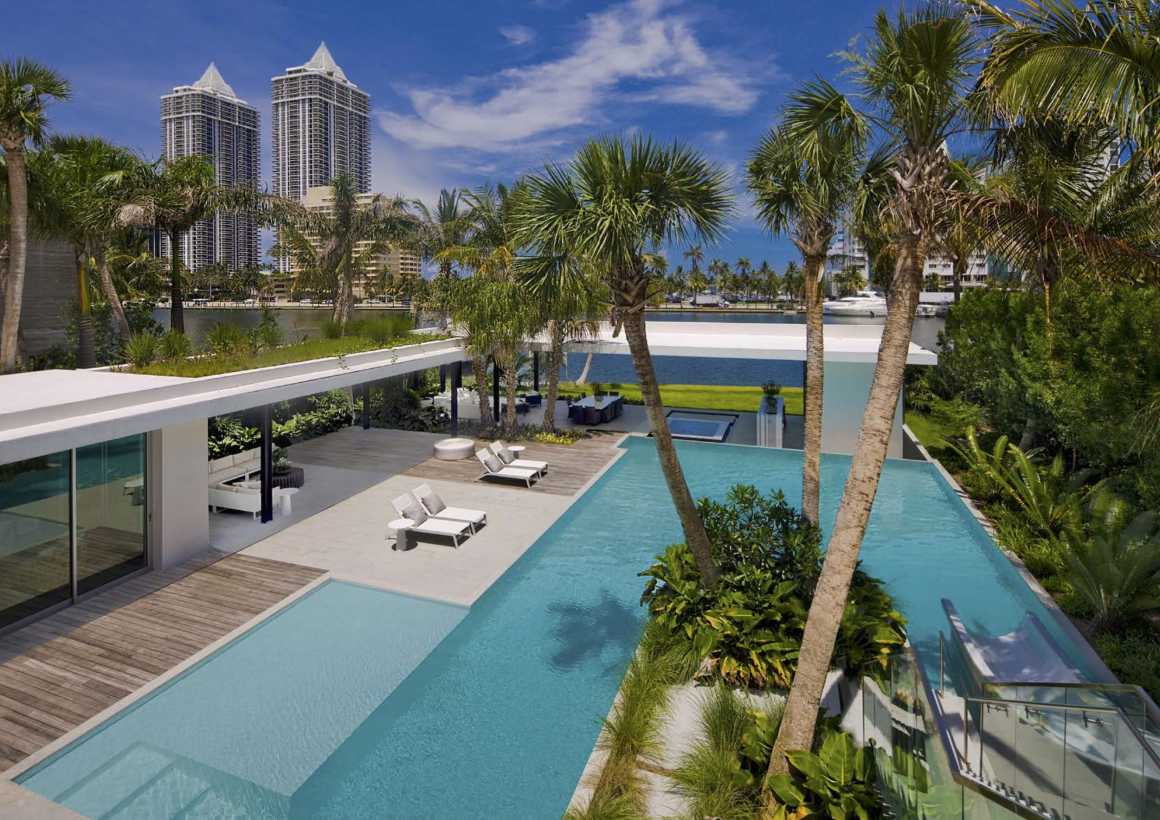
SAOTA的主管Philip Olmesdahl说:“这个设计既包含了很多生活区的景观,也包含了大西洋和世界闻名的迈阿密海滩的景观。”“虽然整体当代建筑设计是SAOTA设计团队的重点,但空间的使用和连接是主要驱动力——怎样使房子充满生命。”
“The design is as much about containment as it is about the views through the many living spaces, towards the Atlantic Ocean and world-renowned Miami Beach,” says SAOTA director, Philip Olmesdahl. “While the overall contemporary architectural design is a key focus of the SAOTA design team, the use and connectivity of the spaces is the primary driver – how the house lives.”
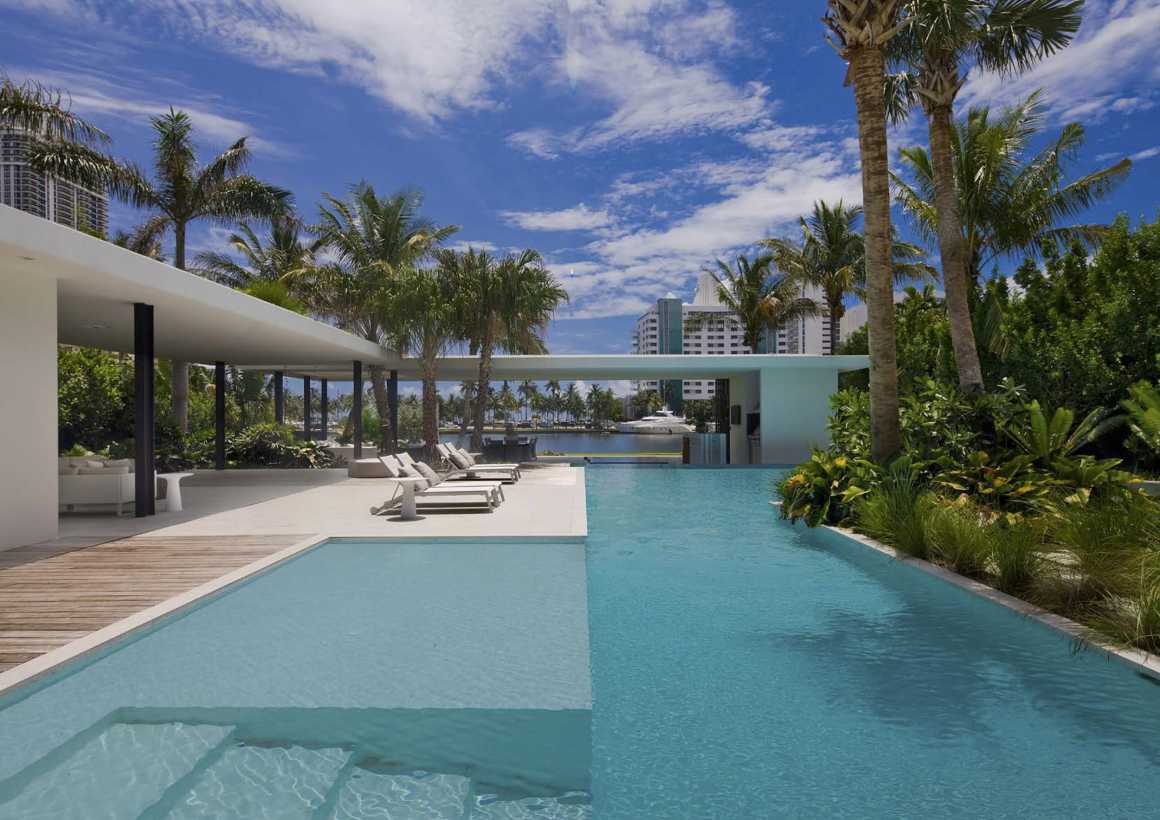
水上的生活方式是一种独特的迈阿密体验,SAOTA想要加强这一点,以适应迈阿密的夏季。总的来说,场地上整个水体的大小,大约占了六居室房子的一半空间。
The approach to living on the water is a unique Miami experience and something SAOTA sought to reinforce, in keeping with the continuous summers in Miami. In total, the size of the overall body of water on the site, is about half the space of the six-bedroom house.
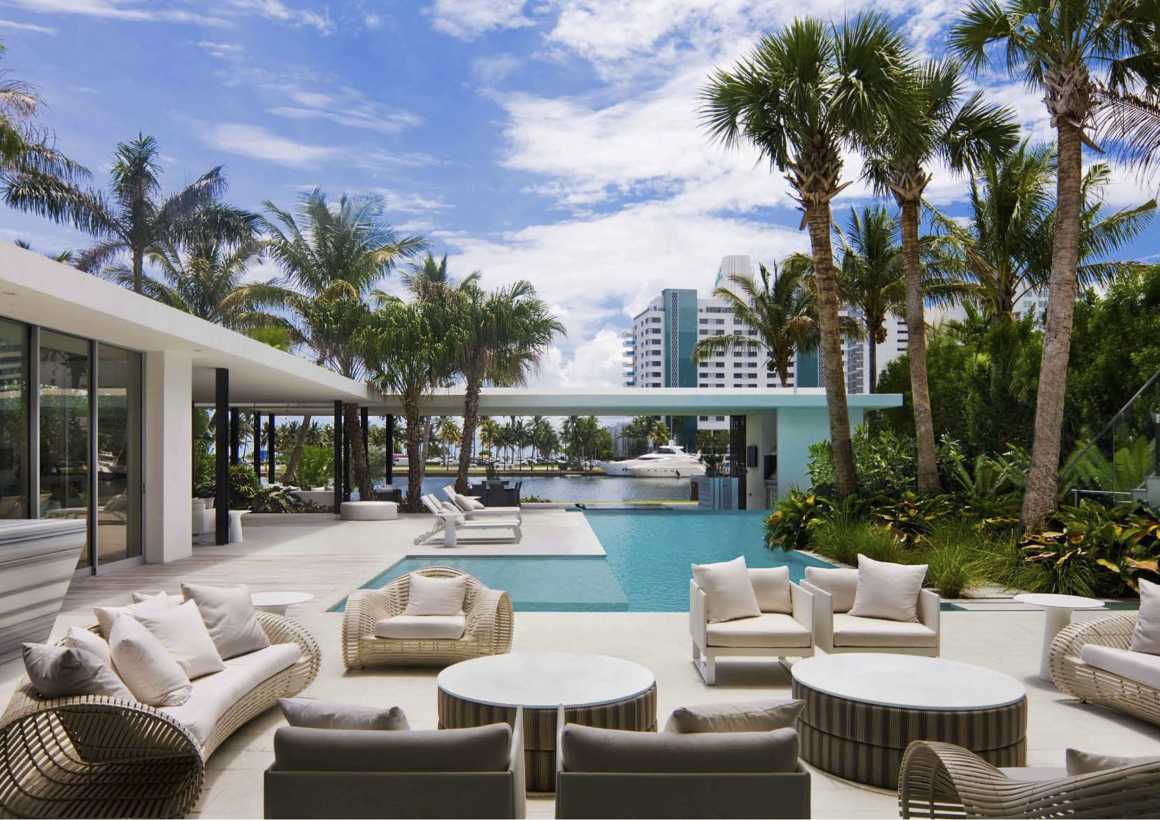
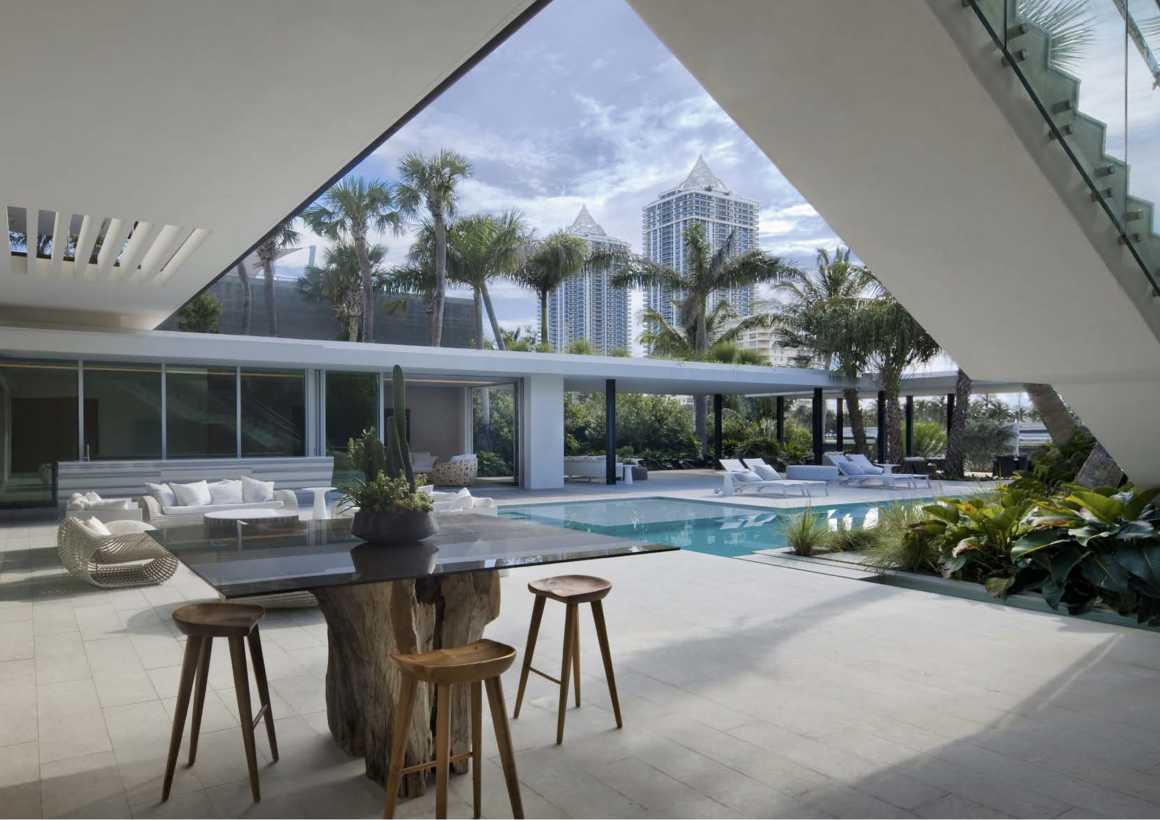
当你到达场地,一个多功能篮球场为松树路创造了一个缓冲区,当你进入宏伟、宁静的前院时,它提供了一种悬而未决的到达体验感。在另一边,房子的后面,泳池亭为人们提供了一个即时享受水的空间-无论在游泳池还是水道;这是一个提供户外体验的封闭空间,同时具有隐私性。
On arrival, a multi-purpose basketball court creates a buffer to Pine Tree Drive, offering a suspensive arrival experience as one enters into the grand, serene forecourt. On the opposite side of the property, to the back of the house, a pool pavilion provides a space for people to enjoy the immediacy of the water – both at the pool and at the waterway; an enclosed space offering an outdoor experience, while also allowing for privacy.
SAOTA总监Mark Bullivant说:“泳池庭院的设计花费了我们大量的时间和精力。我们花了很多时间来理解空间的使用,包括如何使用和何时使用泳池。”户外区域根据一系列的活动事件构成;无论是热水浴缸、烧烤、酒吧还是两层楼的滑水道。水上滑梯成为游泳池的焦点,使空间更具娱乐性。
A great deal of time and effort went into the design of the pool courtyard,” says Mark Bullivant, SAOTA director. “Time was spent understanding the use of the spaces, including how and when the pool will be used. The outdoor area is animated by a series of events; whether that be the hot tub, BBQ, bar, or a two-storey waterslide. The waterslide forms a focal point at the pool pavilion and makes the space appealing for entertaining.”

自然采光在设计中起着重要的作用,房子侧侧的玻璃窗使室内充满了自然光。室外露台的设计也充分利用了西面的阳光,直到下午。
Natural lighting plays a strong role in informing the design, with glazed openings to the side of the house flooding the interiors with natural light. The outdoor terrace is also designed to take full advantage of the Western sun, late into the afternoon.
Raymond Jungles 轻松、自信、写意的景观设计方式创造了真实反映迈阿密的自然环境。内部和外部空间的结合使得郁郁葱葱的绿色植物能够以结构化的方式侵入住宅。
“Raymond Jungles’ relaxed, confident and freehand approach to landscaping resulted in a natural environment that truly reflects Miami. The integration between interior and exterior spaces allows lush greenery to invade the home in a structured way.”
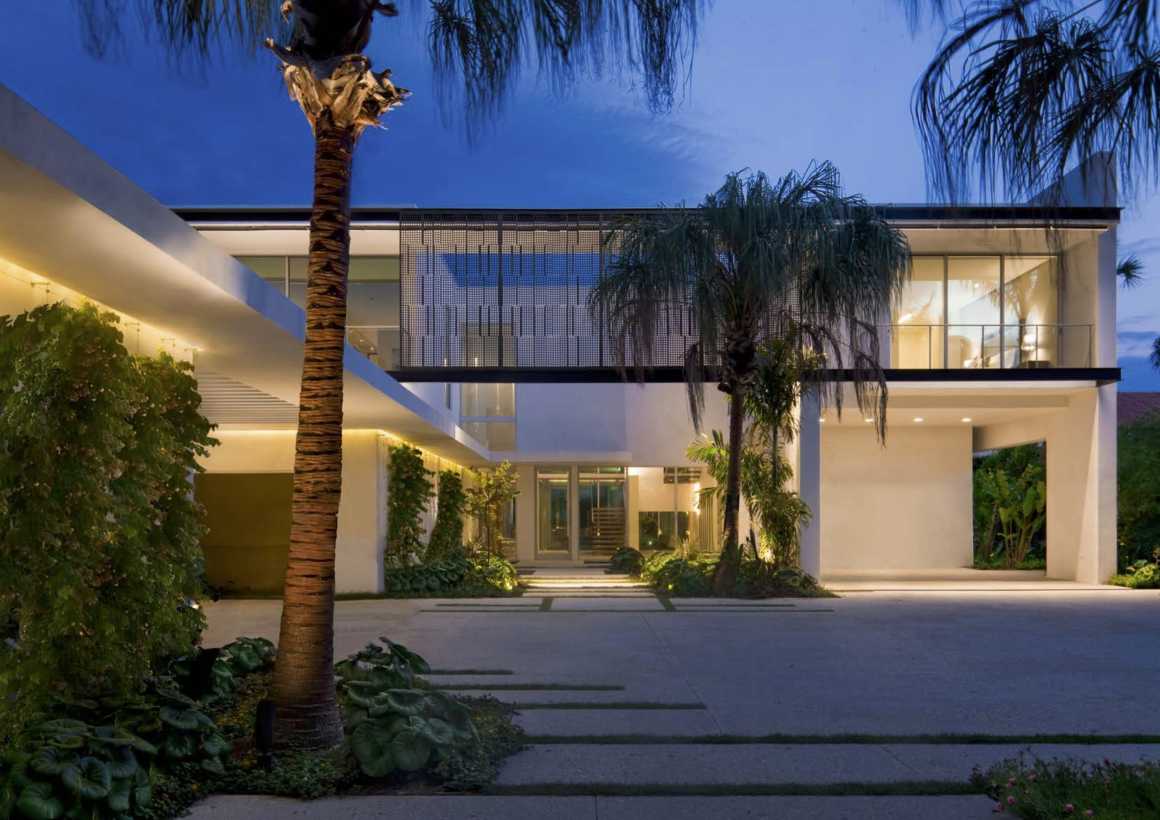
各种生活空间的容纳概念最好地体现在遮蔽建筑的屏幕上。最初是出于对隐私和太阳能控制的功能需求,随着应用的演变成了更重要的东西,就像穿孔阳极化铝成为建筑珠宝一样。屏幕发挥了光的特性,增强了封闭和透明的体验。
The concept of containment of the various living spaces is best embodied in the screens that cloak the building. Primarily born out of the functional need for privacy and solar control, their application evolved to something far more significant as punched anodised aluminium becomes architectural jewellery. The screens play with the character of light, heightening the experience of enclosure and transparency.
© SAOTA
该屏幕有多种功能;在某些情况下,它们定义了空间,如入口的双倍容积,而在另一种情况下,它们有助于创建私人保护区,就如卧室中的露台可以作为房间的一部分。当屏幕是标志性的,饰面是自信果断但克制的。其主要意图是实现一个可控和连续的面板——尽可能将材料限制在一个核心。这确保了不同空间之间的凝聚力,创造了一个精致舒适的家。
The screens have multiple functions; in some instances they define spaces, as seen with the double volume nature of the entrance, and in others they facilitate the creation of private protected sanctuaries, as seen in the bedroom where the terraces can be screened in to become part of the room. Where the screens are iconic and loud, the finishes are assertive, but restrained. A key intent has been to implement a palette that is controlled and continuous – limiting the materials to a core few wherever possible. This ensured a cohesion between various spaces, creating a home that is refined and comfortable to live in.


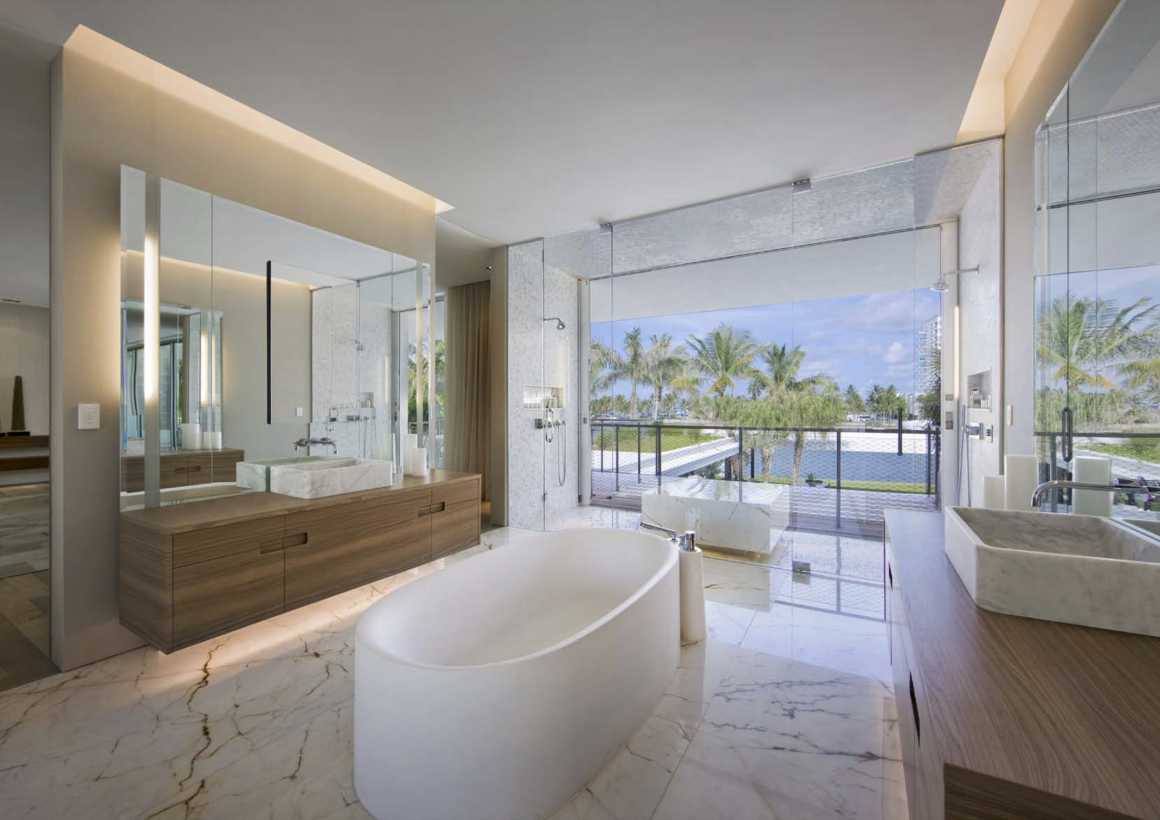
室内设计与Nils Sanderson合作。住宅精致的室内设计巧妙地唤醒了所有的感官,留下了发现的空间。宁静和谐,流畅的装饰给城市生活带来了一些喘息。经过精细处理的图案和纹理,在充满阳光的空间中形成温暖的色调。Lux Populi独特的照明设计补充了这一点。设计师使用的方法使事情保持平静和克制,创造一个轻松的氛围。而空间里的奇异和温暖则是通过各种材料来实现的,包括马蹄莲和石灰石,木材的丰富性、纹理和运动。
The interiors are designed in collaboration with Nils Sanderson. There is a refinement to the interior design of the home that subtly rouses all senses but leaves room for discovery. Serene and harmonious, the fluid finishes creates a sense of respite from the pace of city life. Warm tones are explored throughout the sun-filled spaces by using delicate manipulations of patterns and textures. This is complemented by unique lighting designed by Lux Populi. The designers approach keeps things calm and subdued, creating an effortless design. Singularity and warmth is achieved through various materials including the callacutta and limestone, the wood’s richness, texture and movement.

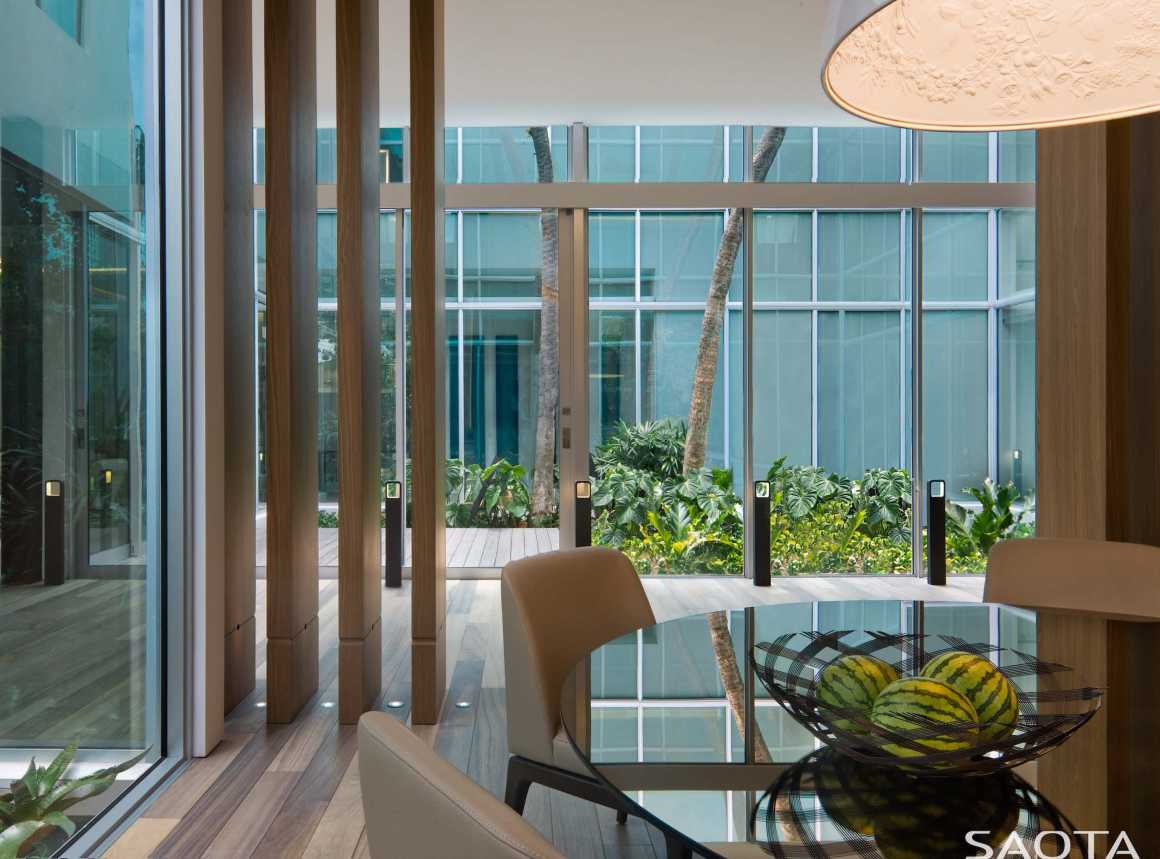
▼建筑平面图 Floor Plan
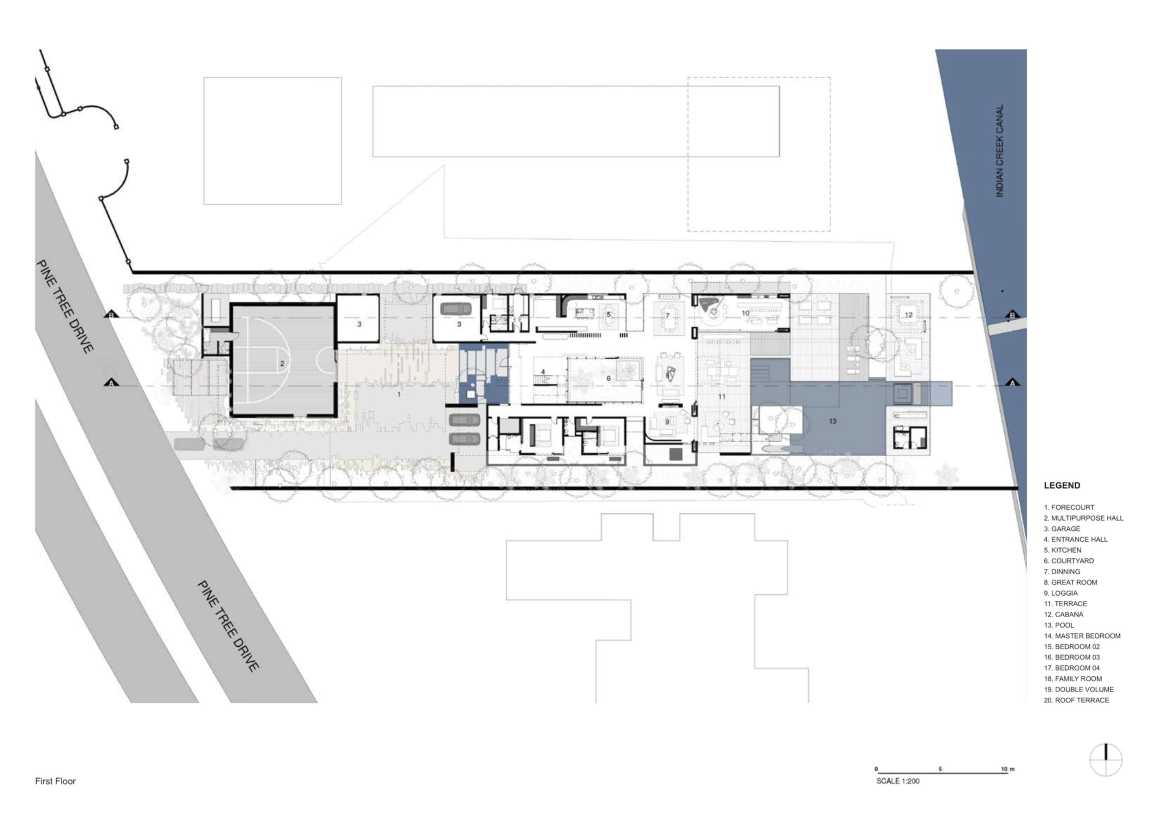
▼建筑剖面图 Sections
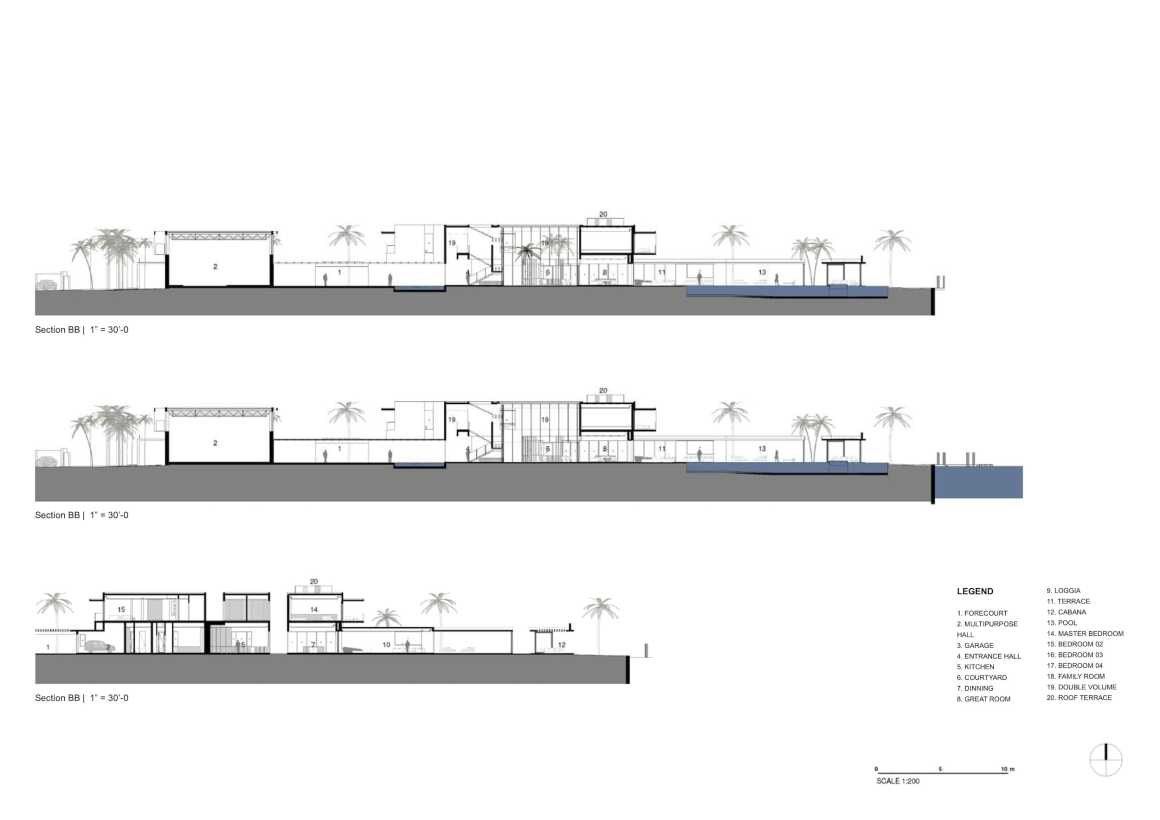
▼建筑立面图 Elevations
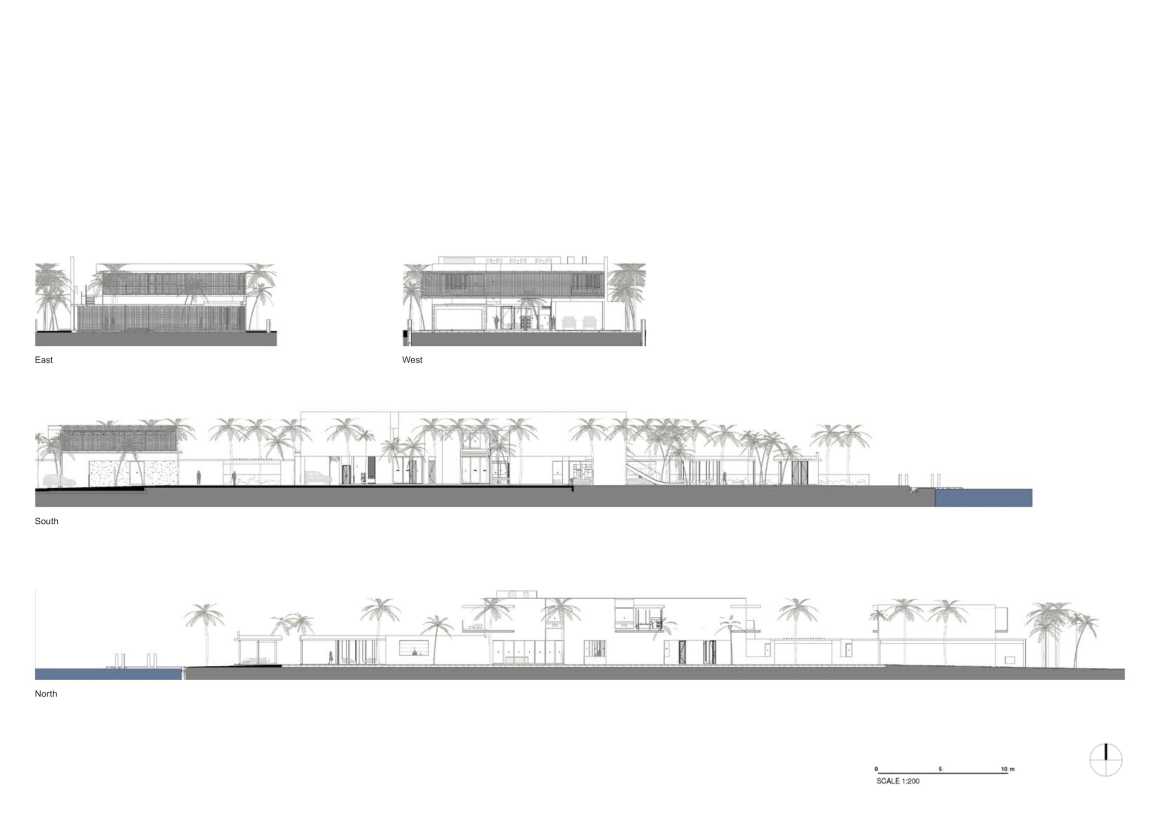
Pine Tree是SAOTA在迈阿密完成的第一个项目,由DVice担任建筑记录师,Brodson担任建筑公司。
SAOTA的设计DNA源自南非的生活方式,强调户外和家庭是生活方式的延伸。
被迈阿密温暖的气候和景观潜力所吸引,该设计体现了一种将住宅的使用和功能作为设计过程的驱动力的方法。这是SAOTA在北美和中美洲、欧洲、非洲、亚洲、大洋洲和中东超过33个国家的项目取得国际成功的主要原因之一。
Working with DVice as the architect of record and Brodson as the construction company, Pine Tree is SAOTA’s first project to be completed in Miami.
SAOTA’s design DNA is derived from the South African way of living, with emphasis on the outdoors and homes as an extension of a lifestyle.
Captivated by the warm Miami climate and landscape potential, the design embodies an approach that prioritises the use and the function of the house as the driver for the design process. This is one of the main reasons for SAOTA’s international success with projects in more than 33 countries across North America and Central America, Europe, Africa, Asia, Australasia and the Middle East.
项目名称: Pine Tree
项目地点: 美国迈阿密
建筑师: SAOTA
项目建筑师: Philip Olmesdahl, Mark Bullivant & Andrew Moerdyk
建筑记录: DVICE Inc. – Dan Ritchie
承包商: Brodson Construction
室内设计: Nils Sanderson
照明顾问: Lux Populi
景观设计: Raymond Jungles
项目摄影师: Dan Forer
Project name: Pine Tree
Project Location: Miami, United States
Architects: SAOTA
Project Architects: Philip Olmesdahl, Mark Bullivant & Andrew Moerdyk
Architect of Record: DVICE Inc. – Dan Ritchie
Contractor: Brodson Construction
Interiors: Nils Sanderson
Lighting Consultant: Lux Populi
Landscaping: Raymond Jungles
Project Photographer: Dan Forer
更多 Read more about: SAOTA



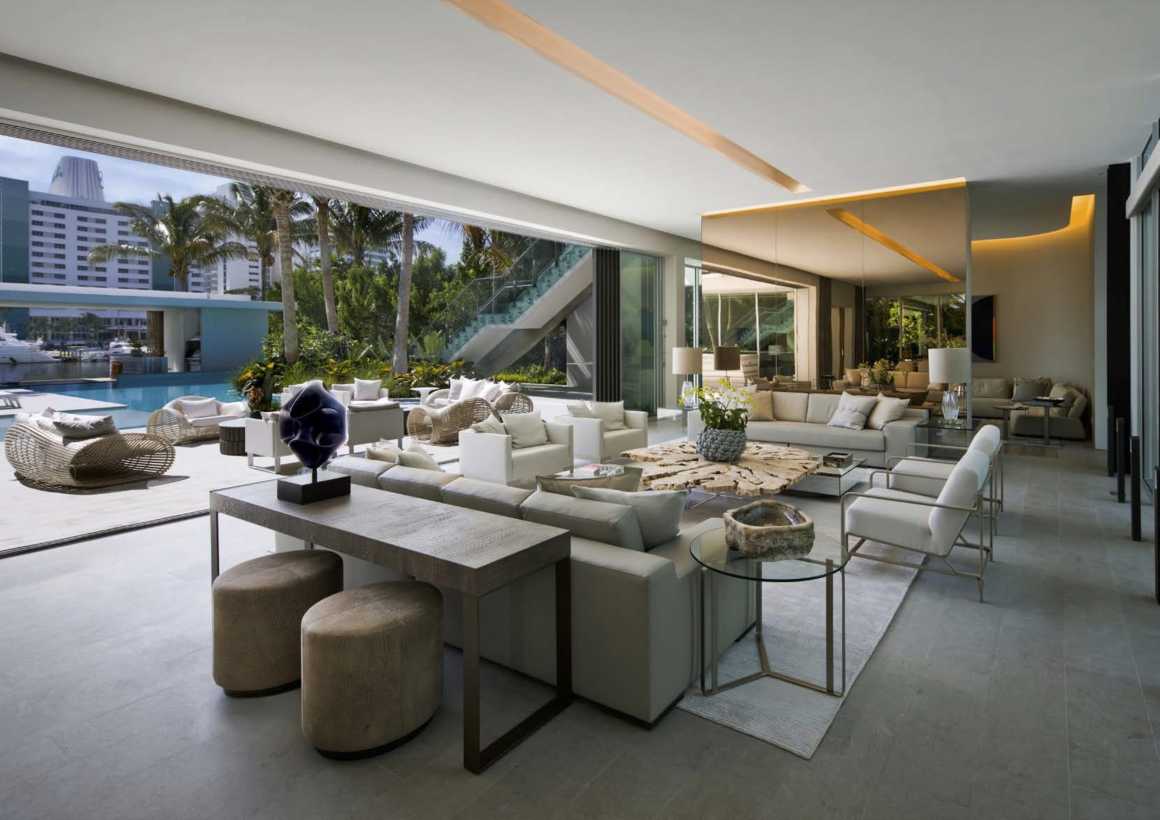


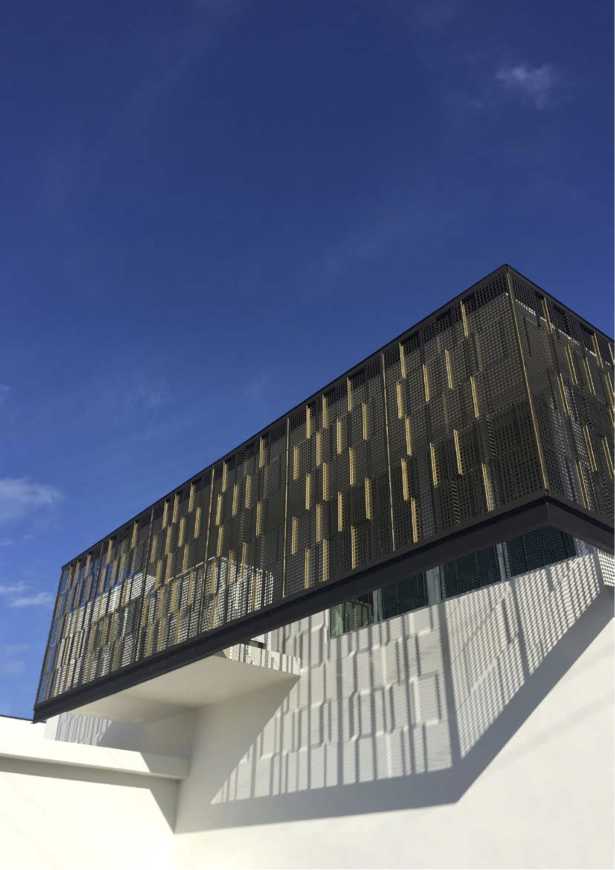
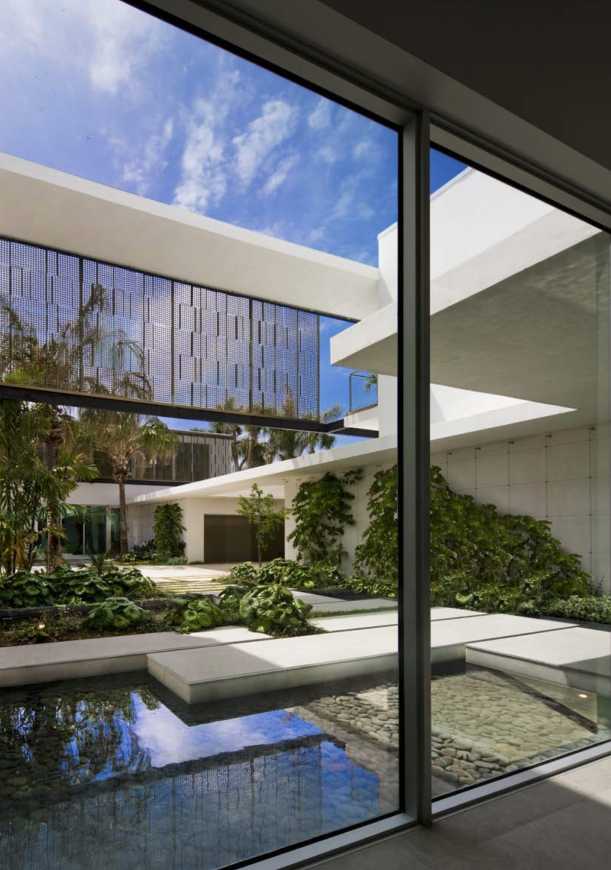
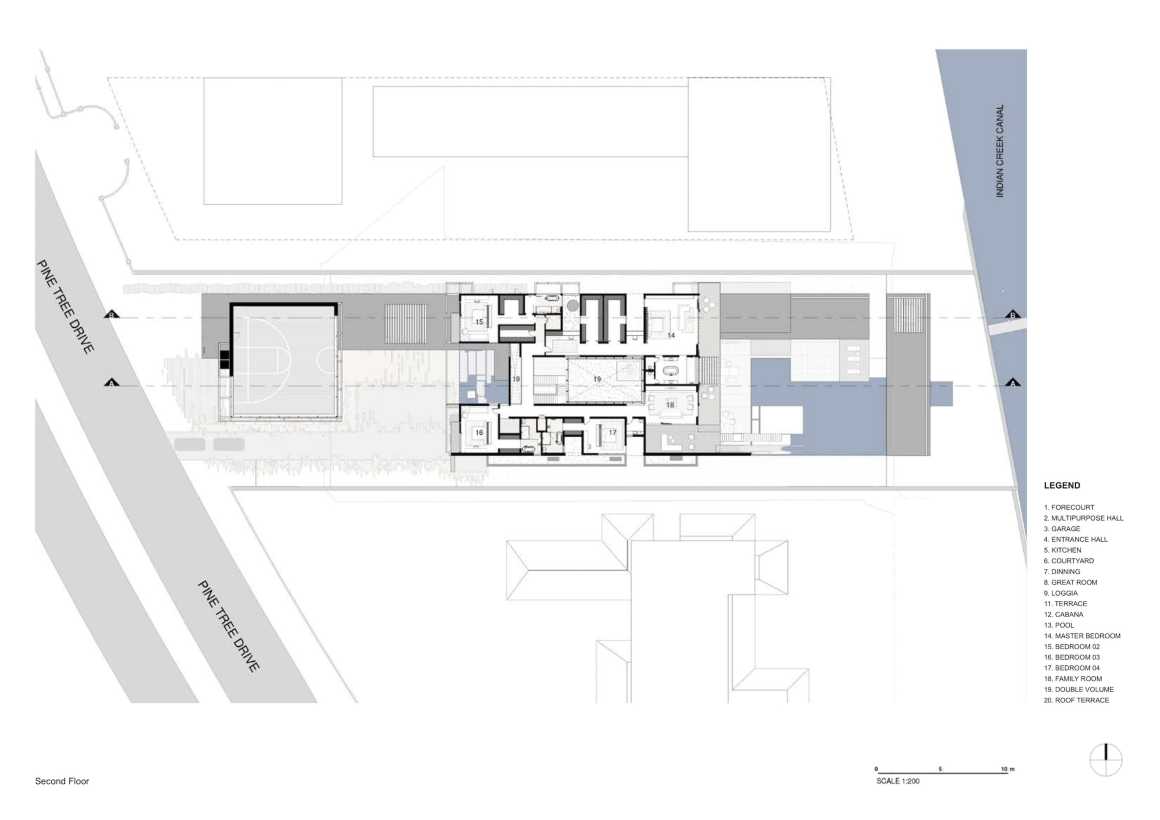



0 Comments